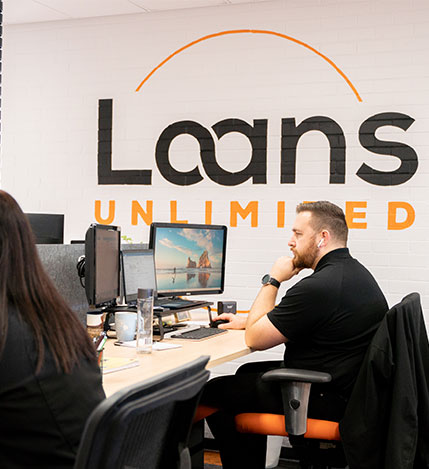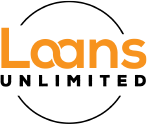Car Finance Terminology - All The Terms You Need To Know
Car finance is overwhelming on its own, whether you’re borrowing money to buy a new or used car. There are a number of car loan products to choose from and so many requirements and conditions wrapped around terminologies that make a regular person scratch their head in confusion. Wouldn’t it be simpler if you could understand the terms used when you take out a car loan? We’re here to help.
On this page, you will find a thorough guide that will allow you to navigate the world of car finance with ease.
Use the buttons below to jump to a section you want to learn more about:
The Most Basic Car Finance Terminologies
When you are ready to take out a loan to purchase a car, there are some terms that you will encounter, no matter where you choose to borrow. The most common are:
-
Annual Percentage Rate (Apr):
Expressed in percentage, just like the other rates, the APR is the basic cost of the loan for the entire year. Understandably, many people confuse the APR with the interest rate. In fact, some sources use them interchangeably. However, they are two different things. The APR is the annual cost of your loan, which also includes other fees and charges, including account fees and penalties.
-
Comparison Rate:
Some lenders call the Annual Percentage Rate the comparison rate. In general, these two terms are treated the same. They are used to help borrowers identify how much their car loans will cost them in the most accurate manner possible. When applying for finance, you should always check the comparison rate or APR of the products offered to you, which makes comparing them so much easier.
-
Down Payment:
One of the most understood terms in car finance and the world of lending, a down payment is simply the initial amount you give when purchasing a vehicle. Since cars are a large purchase, you may want to pay a portion of its cost upfront. This is done in the form of a down payment, which reduces the amount of money you need to borrow. It's also called a deposit.
-
Interest Rate:
The most significant difference between APRs or comparison rates and interest rates is that the latter only pertains to the interest itself. The APR is much higher than the interest rate in many cases, except if you're given a special offer. That's because it already includes all the other fees that you have to pay for the money you borrowed. The interest rate is the advertised or nominal rate and can either be fixed or variable.
-
Loan Term:
This pertains to the duration of the loan, which tells you how long you will have to pay the amount due. You can find this piece of information in your loan contract or agreement where you will be told the payment frequency (usually weekly or monthly) for up to a specific number of months or years (such as 12 months, 36 months, and so on). The longer the loan term, the smaller your regular repayments will be. However, you will end up paying more than what you originally owed.
-
Total Price:
This is the full amount you will need to pay as calculated by the lender.
When considering which lender or car loan product to go for, always look at the APR or comparison rate. Whilst the interest rate is often the advertised rate, check the APR, which gives you a more accurate picture of the total cost of the loan.
Where Do You Get Car Finance?
If you cannot buy a car upfront, you have a number of options to afford the payment, including:
-
Dealer Financing:
A convenient way to buy a vehicle, dealer financing is a one-stop solution where you can get financing and purchase a car in one place, a dealership. The requirements are pretty strict, including having an excellent credit rating. Nevertheless, many dealers will take the work off you, saving you time and effort. The deals can be attractive, but be careful with dealerships that only resell a bank loan in order for them to make a profit.
-
Bank Loan:
If you want the best offer, go to the bank. Interest rates are lower, mainly if you are already an existing customer. However, you will most likely have to provide a 10% down payment or more, which may be required to cover car depreciation. Banks also often need you to provide collateral. In the case of a car loan, the car is usually the collateral, which means they can take it from you if you default on your payments.
-
Private Lender:
Buy a car with a loan from a private lender to avoid dealership mark-ups. The requirements are generally more lenient, so you can buy used or new cars from any seller.
-
Home Equity Loan:
If you own a home, you can use it as your loan's collateral. Beware, though; if you don't pay the owed amounts on time, you will end up losing your home.
-
Credit Union:
For an even lower financing cost, check credit unions that offer car finance. If you have bad credit, you just might qualify for a loan. In order to borrow, however, you must be a member of the credit union, usually for a specific length of time.
Whichever source of financing you use, you will always undergo an assessment to determine your capacity to repay the loan. Your current circumstances, including debts, bankruptcy, and regular expenses, will also be evaluated before you can be approved.
Types, Methods, and Agreements
Car finance can come in a variety of shapes and sizes, including:
-
Chattel Mortgage:
Buying a car under a Chattel Mortgage means that you immediately take ownership of the vehicle. The financier, lender, or dealer places a mortgage over the vehicle, making it the loan's security. The best thing about this type of car finance is that it often has a low interest. However, if you don't pay the amount you owe, you will lose the car.
-
Commercial Hire Purchase (CHP):
The hire purchase agreement means that you hire the car from the financier. Just like when leasing a vehicle, you are responsible for periodic payments, which can range from three to five years. When you make the final payment, the car is yours.
-
Finance Lease:
This financial instrument is available mostly for businesses. You can buy a car without making a large lump sum payment if you are a business owner. Instead, you pay monthly for the residual value before possessing the vehicle.
-
Novated Lease:
This agreement exists between the purchaser (employee), employer, and financier. The employer will lease the car from a financier on behalf of the employee. The employer will also make the repayments, taking them from the employee's salary. This method is great if you're an employee looking to reduce your taxable salary.
-
Refinance:
To refinance means you already have an existing loan. This method is mostly done by switching to another lender or loan product that offers more attractive rates. The goal of refinancing is to reduce monthly or total payments.
We recommend waiting at least six months after getting approved of your previous loan before refinancing; otherwise, it can hurt your credit score.
Payments, Rates, Fees, and Penalties
The cost of the loan is a huge deciding factor for any borrowing customer. Here are some terminologies associated with the loan cost that you should know about:
-
Balloon Payment:
Loans have a fixed payment that you need to make to pay down your balance. With a balloon payment, this fixed payment can be reduced so that periodic payments will be more comfortable and affordable for you. However, it will cost you a one-off lump sum payment, which you have to make at the end of the loan term.
-
Early Repayment Penalty Fee:
Some lenders charge an early repayment fee if you repay your loan more than the allowed amount or if you pay in advance.
-
Early Termination Fee:
You will have to pay an early termination fee if you pay off your loan prior to the agreed date. This is to compensate for the lost interest out of the borrowed amount.
-
Establishment Fee:
When you take out a car loan, it will automatically have an establishment fee. It's added to your loan at the beginning after depositing money into your bank account or if a transfer is made.
-
Fixed Interest Rate:
When a loan's interest rate is "fixed," it will not change despite the state of certain economic factors. Fixed rate loans can have fixed interest for the entirety of the loan or a set period before switching to a variable rate.
-
Variable Interest Rate:
The interest rate can change based on a financial index or specific benchmarks that may fluctuate periodically.
One more fee that you need to know is the stamp duty. In WA, this is based on the manufacturer’s price for new vehicles or a reasonable value for used cars. Stamp duty starts at 2.75% for vehicles costing up to $25,000. For vehicles over $50,000, the stamp duty is 6.5% of the price. Use the stamp duty calculator from the WA Department of Finance here.
Other Important Car Finance Terms
There are still a lot more terminologies used in car finance. Here are common terms that you will likely encounter upon loan application:
-
Loan Contract:
This is a formal contract between you and the lender, which provides all the information about the loan, including its terms and conditions.
-
Loan Portability:
With this facility, you can change the supporting security, such as vehicle or property, to another without needing to switch to another product.
-
Pre-Approval:
Before a loan is confirmed, you will first be up for pre-approval, which allows you to know how much you can borrow beforehand.
-
Redraw Facility:
You can withdraw money that you have already paid for the loan. Not all lenders and loan products offer a redraw facility.
-
Retained Interest:
Paying early will result in unpaid future interest, which is known as retained interest.
-
Secured Loan:
If you are required to provide collateral for a loan, it means it is a secured loan. Most car loans are secured since they automatically take the purchased car as security or collateral.
-
Unsecured Loan:
The opposite of a secured loan, an unsecured loan is simply financing that does not require security. The drawback here is that interest rates are higher. Even though you do not provide collateral, lenders still have the power to take any legal action against you if you default on your loan.
Use the definitions above to decode the terms in car finance that you need to know. If you require more in-depth assistance on your loan with us, please do not hesitate to contact our friendly team here at Loans Unlimited.

How We
Can Help
If you have any questions about car finance, why not talk to us? Our team can walk you through what a loan means for you and how it can get you in your new car sooner!
Contact our team on 1300 212 200 today.


